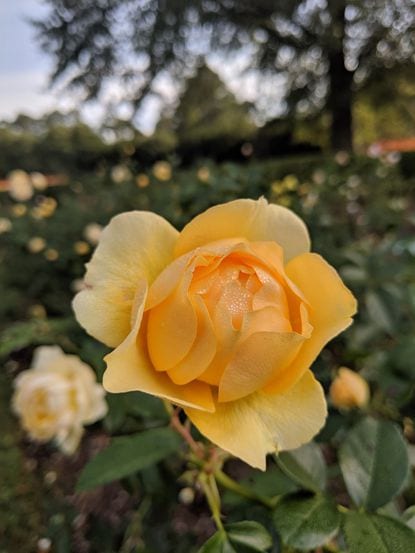In some varieties, selective breeding has mutated the multitudinous stamens of the rose into petals. The extra petals make pollination impossible, which is why these full flowered varieties do not make rose hips. (Allissa Bunner) Under the creaking boughs of an oak tree, she found it — a dryad, or wood nymph, cold and lifeless where it lay. Chloris, Greek goddess of flowering plants, knelt and wept for the unlucky creature. So moved by its beauty, even in death, that she was spurred to honor it by changing its corpse into a flower. She called on Dionysus, God of wine, to add a sweet perfume and Aphrodite, goddess of love, to add beauty. Lastly she called Zephyros, the west wind. He blew away the clouds, allowing the sun to shine down on the creation, a rose. And since that ancient tale, the flower has not lost its favor. A symbol of love and romance, depicted on flags, coins and coat of arms, residing in our cupboards, the rose has been a part of human history for thousands of years. I will admit, I have never liked roses. I specifically asked for their omission in the flowers at my wedding. My husband knows better than to bring them home. As a landscaper, their prickles made me cry, which must be the reason so many fell under my care. I told Ginger Sage, Newport News native, exactly how I felt when she first contacted me, but she persisted in asking me to reconsider. Her late great-grandmother, Orpha Richardson, was an award-winning rose grower in the area. Sage kindly shared pictures and her story with me, forcing a change of heart. Rosa is a genus of woody plants in the same family as almonds, cherries, plums and many other important commercial fruits. There is much debate about the exact number of species described, with estimates ranging from 50 to 360. Thanks to selective breeding over thousands of years, the list of cultivated varieties is numbering well over 200,000, with new cultivars being added each year. While most wild species exist in shades […]






